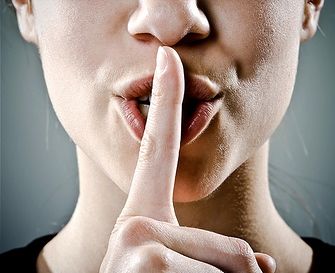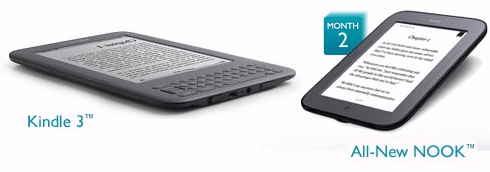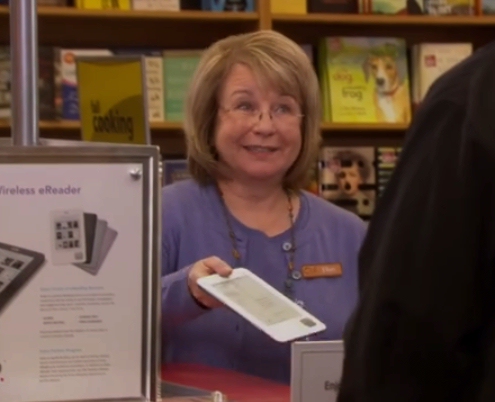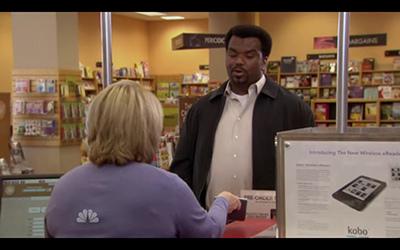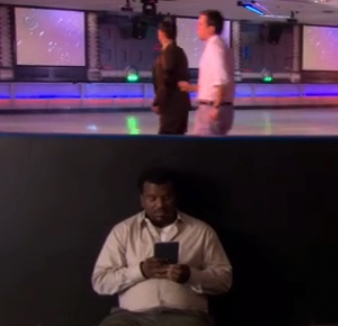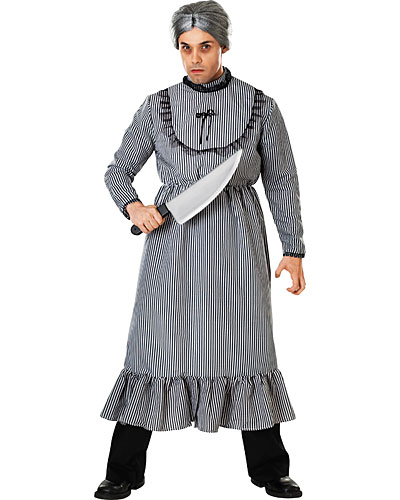
Is Amazon trying to kill its competition? Amazon’s been offering new $20 discounts on four of their Kindle Fire HD tablets through this Sunday — which is Mother’s Day in the United States. (For a shortcut to the sale, just point your browser to tinyurl.com/Fire4Mom , and enter the code “Fire4Mom” to claim the discount.) But what seems like a nice gift idea may actually just be Amazon’s way of remaining competitive. Because Barnes and Noble had already announced big discounts on their own digital reading device, the Nook. (They’ve lowered the price of their 9-inch, high-definition Nook by over $90, to just $179…)
And they’re both fighting competition from another digital reader — the Kobo. This week I was surprised to see some slick television ads been touting the Kobo as the perfect Mother’s Day gift. It shows heart-warming footage of mothers reading to their children, closing with an announcer reminding viewers that “She gave you the gift of reading. This mother’s day, give it back.” Of course, my first thought was that same slogan could be applied to the Kindle — and it looks like Amazon had the same idea. Last week I received a promotional email for Amazon’s Kindle Paperwhite which was using a nearly identical slogan!
“Mom sparked your love of reading. Give her the perfect thank you gift…”
What’s going on? I think the answer lies in a 2010 study, which concluded that 47% of all Kindles were received as a gift. Amazon knows there could be a one-time spike in sales for Kindles this month from all those people who are shopping for the perfect Mother’s Day gift — and apparently, both Barnes and Noble and Kobo Inc. reached the same conclusion. But the situation may be even more desperate for the Nook — at least, according to a Friday rumor. The technology blog TechCrunch reported that Microsoft may be about to purchase the Nook, adding that if it happens, Amazon’s War with Barnes and Noble “could be over.”
At first I thought the acquisition might be good news for the Nook — but most of the technology pundits seem to disagree. “Microsoft will probably simply kill it on purpose,” writes a columnist at Forbes. “The reason is that Microsoft will have no interest in continuing to sink money into a weak performing Android line of devices.” (Microsoft, after all, markets their own line of tablets that are powered by the Windows operating system.) And by the end of the day, Amazon’s stock had shot up in value by 1.3%.
“This will indeed be good news for Amazon and Apple,” Forbes continues, for the simple reason that “Killing off any competition is good.” So when Mother’s Day rolls around again in May of 2014, consumers just might have one less digital reader to choose from. Maybe that’s why Barnes and Noble offered such steep discounts this year on the price of the Nook.
This year’s “Mother’s Day Price War” may also be remember as The Nook’s Last Stand.
